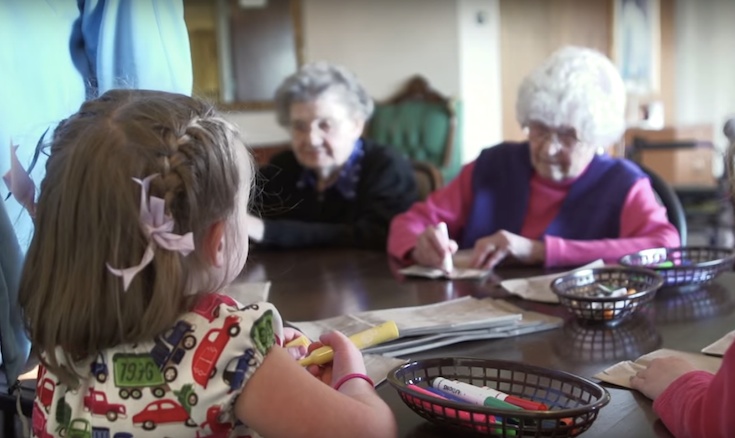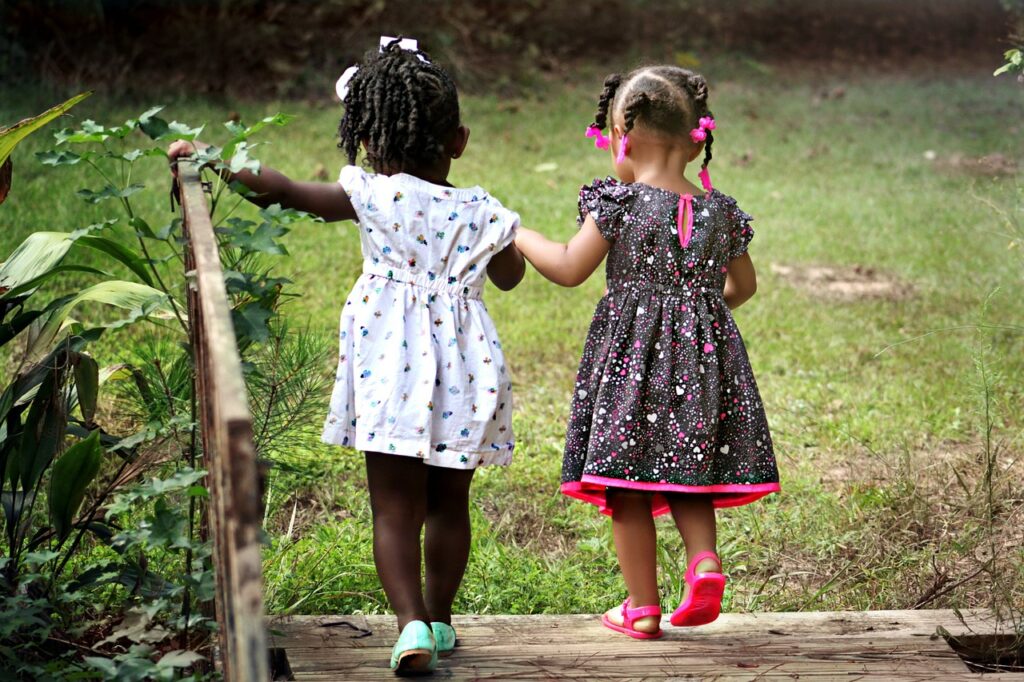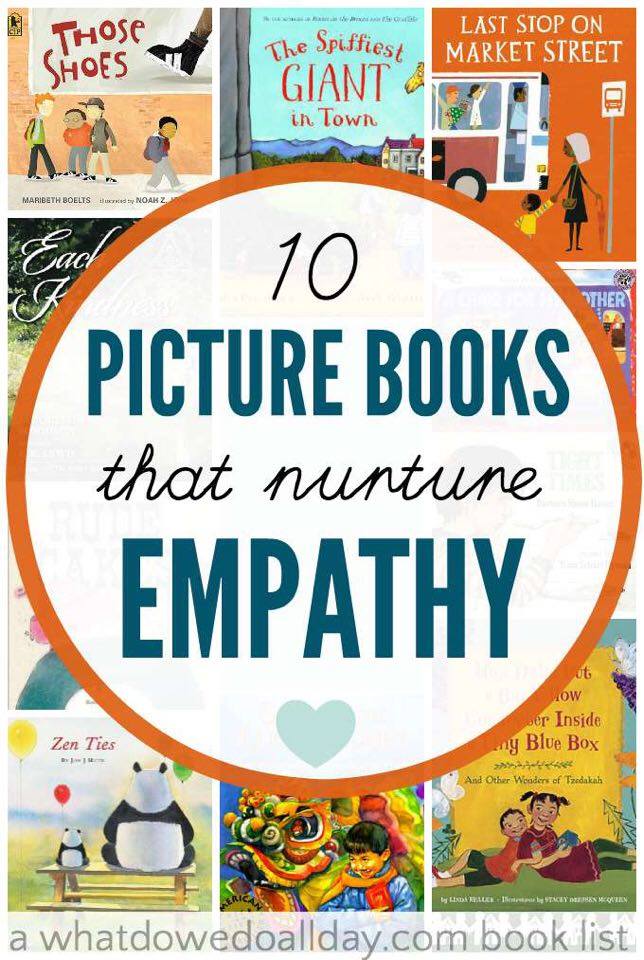Lately the world has felt like an especially unkind place. The political world and the online world have a way of seeping into our personal worlds. Sadly, our children aren’t immune to the tension and division.
As parents, teachers, and caregivers, we want to protect our children from the ongoing negativity of current events. But we also want to teach them how to live a more compassionate life. After all, they are tomorrow’s leaders, innovators, and teachers. The values we instill in them when they’re little are actually an investment in our future.
Because the stakes feel high, it’s tempting to make “life lessons” harder than they need to be. Teaching important virtues such as kindness and empathy can feel like one more thing on our to-do lists.
But it doesn’t have to be complicated.
Like everything else, we prepare our young children in everyday ways, using real life as our classroom.
Here are 4 simple ways to teach empathy and kindness to young children.
/////
1. Practice empathy and kindness in everyday life.

We’ve all heard the phrase, “More is caught than taught.” This is so true when it comes to modeling the character we want our children to have.
You may think that young children don’t notice the ways you interact with those who are different than you. Perhaps you assume they’re not paying attention when you’re generous with your resources, when you take time to listen and understand, or when you speak encouraging words to others.
But they are listening.
It’s also helpful to be explicit about acts of kindness and generosity, not to brag but to teach. For example, if you’re making a meal for another family, explain why. Let your children come with you to drop it off. If you’re sending a get-well card, let your child walk it to the mailbox.
Children see your kindness. They notice when you’re gracious to those who are gruff or who disagree with you. They’re learning from your life. What do you want to teach them?
2. Read books together.
Stories are a powerful and delightful way to communicate profound truth in a captivating way. Books introduce children to characters, people, and situations they may not be accustomed to. Good stories can evoke compassion, concern, and gratitude.
This list of 10 picture books that nurture empathy is a great place to start!
3. Have simple conversations at their level.

Young children don’t need in-depth conversations about our current political climate. They don’t need lengthy lessons using hypothetical situations. Kids learn best from the everyday world around them — on the playground, at the grocery store, in the home.
Here are a few real life examples:
When they don’t want to share, tell them that we share because sharing is kind. Ask how it makes them feel when someone shares {or doesn’t share} with them.
When a brother or sister is sad, let them comfort their sibling, explaining that a hug is a way to show love.
If a child is being made fun of because they look or act different, explain why this is hurtful. Ask how it makes them feel when someone is unkind to them.
If you’ve recently read a book that teaches a certain virtue, recall the story and apply it to the situation: “Remember when Jeremy gave away his favorite shoes to someone who really needed them?”
Some personality types are naturally more sensitive and empathetic than others. And for very young children, seeing a situation from someone else’s perspective is nearly impossible. Remember that these character traits develop over time as children mature, accumulate life experiences, and see healthy behaviors modeled by those around them.
4. Point out when others are kind and empathetic. {And when they’re not.}
This may sound like we’re teaching our children to be judgmental but let me explain. When a child on the playground shows kindness by sharing or taking a turn, make a point of noticing. “That was so kind of Emma to share her shovel, wasn’t it? Can you tell her ‘thank you?'”
Televisions shows, movies, and books also provide opportunities.
“Did you notice how that boy yelled at his mommy? That wasn’t kind or respectful, was it?”
“See how Little Bear gave his friend a hug when she was crying? He’s showing her compassion and being a kind friend.”
Every day with young children brings myriad opportunities to pay attention, to have conversations, and to practice kindness and empathy as we interact with the small world around us.

In the midst of a larger world that feels divisive and disconnected, parents of young children have an important and timely responsibility to raise children who can be agents of peace and compassion in the world.
We do this one moment at a time, in everyday ways.
/////
What are some everyday ways that you’ve found to teach valuable character traits to young children?
Connect with us in the comments section or through our communities on Facebook and Twitter.
Want to know how YOU can help promote great childhoods in your community? It’s easy. SHARE our posts with your friends! Use the social media buttons at the bottom of this post. Together, we can make a difference.
You Might Also Enjoy
3 Simple Ways to Turn Everyday Tasks into Learning Opportunities
Is Your Child Ready for School? Get Your FREE Readiness Tool!
Get FREE tips on nurturing the young child delivered right to your inbox! Subscribe in the top right corner of this page OR if reading on a mobile device, scroll down to the bottom and simply enter your e-mail address in the box.


